|
Seminars

Series: Topics in the Aesthetics of Music and Sound
University of Southern Denmark, Campusvej 55, 5230 Odense M, Denmark








 English: All of the seminars are conducted in English (unless, of course, all participants present during a given seminar happen to English: All of the seminars are conducted in English (unless, of course, all participants present during a given seminar happen to speak Danish). speak Danish).

 Skype: Throughout the semester, we will continue to experiment with long-distance audience participation via Skype. This has proven to be quite successful, with audience members participating from as many as three countries at a time! If you are interested in attending a Skype: Throughout the semester, we will continue to experiment with long-distance audience participation via Skype. This has proven to be quite successful, with audience members participating from as many as three countries at a time! If you are interested in attending a  seminar in this manner, please get in touch with Cynthia M. Grund a few days in advance at cmgrund@sdu.dk. seminar in this manner, please get in touch with Cynthia M. Grund a few days in advance at cmgrund@sdu.dk.
 Lunchtime Concerts: Please note that there also will be four lunchtime concerts between 12 noon and 1 p.m. throughout Lunchtime Concerts: Please note that there also will be four lunchtime concerts between 12 noon and 1 p.m. throughout  the spring semester. The dates are February 21, March 21, April 18 and May 2, 2013. Please watch the page http://soundmusicresearch.org/lunchtimeconcerts.html for updates. There will also be a fifth "bonus" coffee break concert Wednesday, April 24 2:30-3:30 p.m. the spring semester. The dates are February 21, March 21, April 18 and May 2, 2013. Please watch the page http://soundmusicresearch.org/lunchtimeconcerts.html for updates. There will also be a fifth "bonus" coffee break concert Wednesday, April 24 2:30-3:30 p.m.
UPCOMING SEMINARS, FALL 2013
Titles and abstracts will be uploaded during the summer of 2013. Meanwhile, please see http://www.soundmusicresearch.org/seminarsfall2013.html for the schedule of speakers.

SEMINARS held during SPRING 2013 in chronological order:
Thursday, February 7, 2013, 3:15-5 p.m. in U73
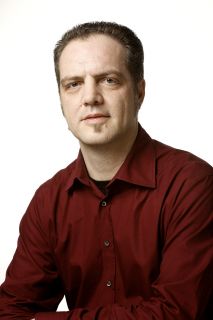
On the Meanings of the Sounds of Commerce
Matthias Bode, Associate Professor, Department of Marketing & Management, University of Southern Denmark
www.sdu.dk/ansat/mat.aspx
Abstract: Commerce always has had a certain sound, a certain song to play. The historical relationships are much more intertwined than the more common antagonistic myths try to argue. Recent socio-cultural and economic changes led to a new phase in this configuration. Market phenomena such as brands have become cultural resources, while a cultural system such as the production and consumption of music became immersed explicitly into branding. Based on this background, this presentation will highlight the changed socio-historical context of the sounds of commerce and give an overview of the embedded practices of “acoustic branding” from a
socio-semiotic perspective.
Audience participation via Skype is also welcome.
Poster for the seminar available HERE.

Thursday, February 14, 2013, 3:15-5 p.m. in U73
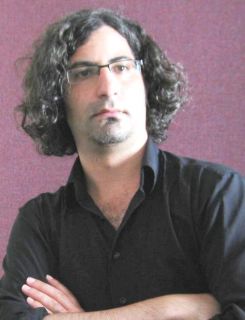
Oracular Music: Musical Modernism and the Ideology of Progress
Golan Gur, MA, Doctoral Candidate, Institute of Musicology and Media Studies, Humboldt University of Berlin
(Via Skype)
Abstract: It should not surprise us that so many composers in the twentieth century aligned themselves with the notion of progress. After all, if music – and art in general – is to maintain its cultural importance and significance, then it must keep pace with the rest of the developments that define modern civilization, in particular scientific and technological developments. Additionally, the emergence of specific historical genres, forms, and styles of music was undeniably conditioned by the political and social circumstances of their era. Yet art works also possess a trans-historical value. The technological innovations of today surpassed those of the past, but present-day listeners and musicians are just as capable of enjoying and appreciating music written hundreds years ago. Indeed, many would agree that new art is not necessarily better than earlier one. Referring to ancient Greek literature, Karl Marx spoke of the "unequal relation of the development of material production". By contrast, some contemporary music theorists and philosophers have argued that only the most recent music can truly fulfil the higher calling of art. What then is the function of music in relation to general progress? When and how did we start thinking of art along these lines, and is it still possible today in the wake of postmodernism? The seminar explores this set of questions, taking as its primary case study Arnold Schoenberg's and Theodor W. Adorno's widespread views of musical progress.
Audience participation via Skype is also welcome.
Poster for the seminar available HERE.

Thursday, February 21, 2013, 3:15 -5 p.m. in U73
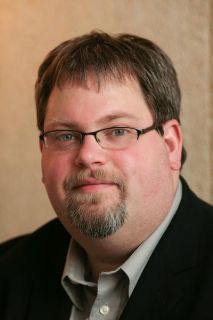
Aesthetics and Pedagogies for Making Music with New Media
S. Alex Ruthmann, PhD, Assistant Professor of Music Education, Department of Music; Faculty Fellow in Residence, Commonwealth Honors Program, Universityof Massachusetts Lowell; President, Association for Technology in Music Instruction; Co-Editor, International Journal of Education & the Arts.
www.alexruthmann.com/
performamatics.org/
atmionline.org/
www.ijea.org/
(Via Skype)
Abstract: This presentation will share contemporary exemplars of new tools and musical practices for making music with new media. Online communities of youth practice are also emerging alongside, and embedded within, these new tools and platforms. More and more, children are learning from and teaching each other mediated by online fora and shared media exemplars. In the process, children are building shared understanding and distributed expertise often in semi-private environments not accessible to their teachers. Given that children increasingly have access to these musical tools (e.g., Noteflight.com, MIT's Scratch, GarageBand, inbflat.net, BohemianRhapsichord.com, etc.) and are actively using them to create music with new media, how should school- and community-based music educators respond to these innovations? How can school music educators make space for and facilitate these new forms of musicianship in their classrooms? In many cases, these new tools and practices raise pedagogical and technological issues that challenge notions of musical aesthetics and practices held dear by formally trained educators and musicians. Processes and practices which used to be only accessible to the most expert practitioners after years of practice now seem to be available to any child at the flick of a finger. These issues, and others, will be raised and problematized.
Poster for the seminar available HERE.
Audience participation via Skype is also welcome.

Thursday, February 28, 2013, 3:15 -5 p.m. in U73
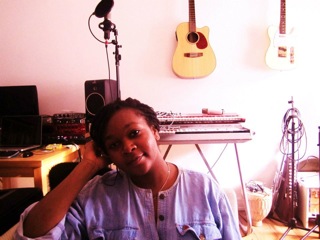
Music, Rhythm and Embodied Cognition
Nereya Otieno, Master's Candidate in Cognition and Communication, Center for Subjectivity Research, University of Copenhagen.
Abstract: Our bodies are involved as much with our cognitive process as our brains. Rhythm plays a key role in our navigation of our own bodies and minds, but it also is a crucial element in our ability to live with one another as a whole. During this talk we will couple scientific evidence with social tendencies in an attempt to make a greater case for the need for and purpose of rhythm in the human species.
The scaffolding for this forthcoming master's thesis is thus a discussion of the implications of rhythm and music in humans as communicative, co-existing, and moving beings. The intrinsic and unavoidable aspects of rhythm will be explored - both in everyday life and in irregular circumstances. What are the effects of rhythm on our speech patterns? What are the effects of rhythm on our sensorimotor cortex? What is suggested by the physical, corporeal characteristics of rhythm and sound? What are the philosophical intimations of the human inclination toward rhythm?
Poster for the seminar available HERE.
Audience participation via Skype is also welcome.

Thursday, March 7, 2013, 3:15 -5 p.m. in U73
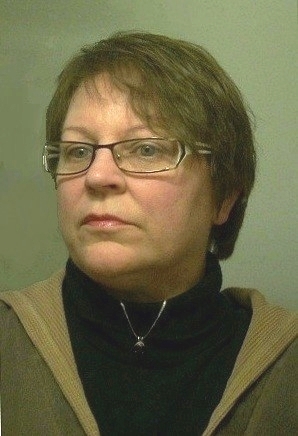
What Music Tells Us About Ourselves and Our Cultural Experience
Mary L. Tuck, currently in the MA Ethnomusicology program at Kent State University, Kent, Ohio.
Abstract: What is it about music that reveals to us our humanness? Why do we do what we do in our cultures? Is there a way that science and the humanities can work together to help reveal these secrets? Today, more than ever, there is awareness that multidisciplinary collaboration will help move all our fields forward. Psychology, neuroscience, anthropology, semiology (to name just a few of the fields involved) are sharing a common dialogue through music. Ethnomusicology, with a multidisciplinary approach as one of its hallmarks, uses the tools of its sister disciplines to look at ourselves at home in our cultural traditions through the lens of music.
What a community holds as sacred and how that experience is communicated and translated into our daily experience is pointing to some potential human universals. The idea of a shared experience is at the very core of our existence and music is an immediate, creative and evolving partner to that experience. Art moves us along our evolutionary path. Today, we will look at the science in the spiritual practice of kirtan (call and response accompanied singing) to understand ourselves in both a reflective and reflexive way.
Poster for the seminar available HERE.
Audience participation via Skype is also welcome.

Thursday, March 14, 2013, 3:15-5 p.m. in U73.
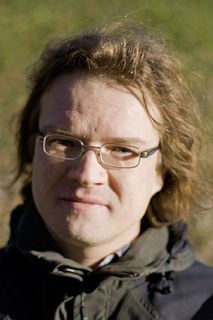
Dwelling “In-Between”: The Ineffability of Musical Meaning as an Asubjective Phenomenon
Tere Vadén, Professor, Department of Art, School of Art, Design and Architecture, Aalto University, Helsinki.
(Via Skype)
Abstract: There have been various efforts towards fixing the meaning of musical structures or motifs in, for example, semiotics and cultural musicology. However, such attempts have resulted in theories that are relevant only in certain cultural, historical or aesthetic contexts. As overall phenomena, both the interminable search for musical meaning and the failed attempts at stabilizing it give evidence of the inescapable slippage of musical symbols.The fact that music never quite “makes it” with regard to symbolic meaning can be taken as a clue when seeking the reasons for its ineffability. With only momentarily fixed meaning, music hovers between the states of structural (symbolic) meaning and completely idiosyncratic (ineffable) experience without collapsing into either of them. The general nature of this “in-betweenness” can be illustrated by the phenomenon of atmosphere as an immediate and all-encompassing affective space that is quasi-objective (intersubjective, not willed) and quasi-subjective (not really “my” emotion).
This kind of atmospheric “in-betweenness” can also be consciously aspired to, as exemplified by the thought and music of the composer John Luther Adams. Due to its characteristic strive for atmospheric effects and its singular compositional techniques, Adams’s music prominently manifests the ways in which the in-betweenness of musical meaning can be upheld and the collapse into the extremes avoided. This applies also to the deliberately ecological undertone of Adams’s music: the relational nature of musical meaning can attune the experiencing subject with the (auditive) world and environment in a way that embodies the core principle of ecology, the mutual interconnectedness of all beings.
Poster for the seminar available HERE.
Audience participation via Skype is also welcome.

Thursday, March 21, 2013, 3:15-5 p.m. in U73.
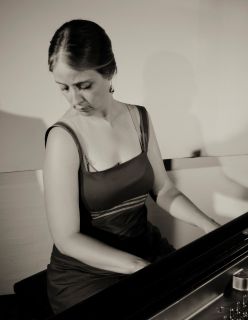 Progress in Piano Pedagogy through Research Progress in Piano Pedagogy through Research
Teresemarie Lisiux, Cand. Musicae, Master of Music - main subject: classical piano. The Academy of Music and Dramatic Arts, Southern Denmark.
Abstract: When giving piano lessons we sometimes tend to follow a tradition of saying the same things to our students that were said to us many years ago when we first started playing. For many generations this has been the only way of delivering "the know how" from one generation to the next. Nowadays, however, we are fortunate to have access to research on movement, brain functions and memory - a lot of information that may aid us in educating our children as well as upcoming pianists. Here in Denmark, nonetheless, we are - in my opinion - too fixated on the way tradition tells us how to teach. How many teachers are actually up-to-date with regard to research results?
While preparing my Master of Music (Cand.musicae) thesis, I tested some results from the world of sports on "how to learn movements in the best and fastest way." I worked with two pianists, one amateur and one professional, and we implemented the ideas over a period of some weeks.
During my seminar presentation I will talk about the results of my work and will present some proposals for utilizing this knowledge when teaching students.
Poster for the seminar available HERE.
Audience participation via Skype is also welcome.
Please Note:Teresemarie Lisiux will be performing together with Emma Oemann, soprano, at the March 21 Lunchtime Concert at the University of Southern Denmark. Please see http://www.soundmusicresearch.org/lunchtimeconcerts.html for details.

SPRING BREAK: Tuesday, March 26 - Monday, April 1; both days included.

Thursday, April 4, 3:15-5 p.m. in U73
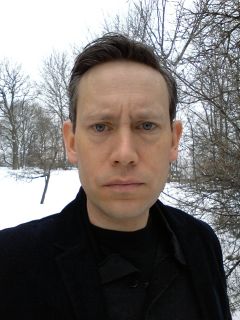
Shaping the Community through Song – Ideology in the Song Collections of Johann Friedrich Reichardt
Mårten Nehrfors, PhD Candidate, Department of Musicology and Performance Studies, Stockholm University.
(Via Skype)
Abstract: In the second half of the 18th century German musicians began to direct their interest towards the newly emerging middle class. Here they found an audience seeking to validate its social status through the acquisition of cultural capital and hence with an interest in music. Musicians began to produce collections of songs and chamber music for this audience, as well as journals and magazines with musical content. In addition to cultural capital the music also provided the middle class with a cultural identity. This was particularly pertinent given that the German territories at the time were fragmented into countless disparate pieces. With their music the musicians helped create a community and provided an emotional expression for that community.
One musician with a keen interest in this audience was the Prussian court Kapellmeister Johann Friedrich Reichardt (1752-1814). This seminar will focus on how Reichardt, with song collections such as Wiegenlieder für gute deutsche Mütter and Lieder für die Jugend, not only provided his middle class audience with a cultural identity, but also actively sought to shape it.
Poster for the seminar available HERE.
Audience participation via Skype is also welcome.

Thursday, April 11, 3:15-5 p.m. in U73

The Correlative Properties of the Unresolved Discord
Mogens Davidsen, PhD, Associate Professor, Institute for the Study of Culture, University of Southern Denmark.
Abstract: Taking as a point of departure an analysis of the short story “Dance Macabre” from 1901 by the Danish writer Johannes V. Jensen (Nobel Prize in 1944), this presentation will suggest an understanding of disharmonic structure in modernistic art, music and literature.
My thesis is, that instead of regarding the break-up of a harmonic paradigm in modernistic articulation as a metaphorical representation of alienation or spleen in the creative subject, these structures (dissonance, fragmentation and ‘incorrect’ syntax) could be understood as providing correlations to a reality the nature of which was described within modern physics at the beginning of the 20th century. Hence, the presentation will look into the implications of understanding modernistic articulation in terms of quantum mechanics as formulated by Niels Bohr in his famous model of the atom from 1913.
Furthermore, the lecture will present Henri Bergson’s ideas of the incapacity of the human everyday mind – being pragmatic in nature - to grasp the real nature of reality, and only in special situations capable of experiencing reality as different from the narrative structure the human mind applies to it. These special situations – among others – could well be in the confrontation with art.
Poster for the seminar available HERE.
Audience participation via Skype is also welcome.

Thursday, April 18, 3:15-5 p.m. in U73
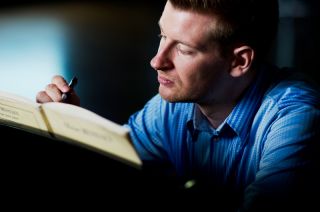
Charles Valentin Alkan:
The Pros and Cons of Virtuosity
Morten Heide, Pianist and Choral Director; NNIMIPA (Nordic Network for the Integration of Music Informatics, Performance and Aesthetics) delegate-at-large representing The Academy of Music and Dramatic Arts, Southern Denmark (AMDA), Odense, Denmark. http://mortenheide.dk/home
As we celebrate the 200th anniversary of French composer Ch. V. Alkan (1813-1888), it's worth asking once again why this great and eccentric innovator within the piano repertoire isn't played more often, but is still overshadowed by his friends and contemporaries Liszt and Chopin, as well as by composers such as Schumann and Mendelssohn.
During today’s presentation, I will propose some answers to the following questions:
• What qualities are to be found in Alkan's music?
• What can Alkan’s piano music offer that is different from that of the other four composers?
• Even though Alkan's piano music is often described as impossible to play, is it all about tremendously difficult, hand-breaking virtuosity?
Throughout the lecture, the musical material under discussion will be exemplified by means of scores, recordings, and live piano performance by Morten Heide.
Poster for the seminar available HERE.
Audience participation via Skype is also welcome.
Please Note: Morten Heide will be performing a program of Charles Valentin Alkan’s music at the April 18 Lunchtime Concert at the University of Southern Denmark. Please see http://www.soundmusicresearch.org/lunchtimeconcerts.html for details.

Thursday, April 25, 3:15-5 p.m. in U73
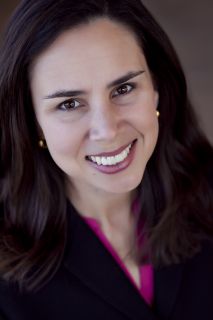
Optimizing Music Learning: The Neuroscience of Skill Practice and Memory Formation
Carla Cash, PhD, Assistant Professor of Piano and Piano Pedagogy; Chair, Keyboard Area, School of Music;Texas Tech University; Lubbock, TX.
(Via Skype)
Abstract: Research over the past two decades has revealed important insights into the formation, refinement, and retrieval of skill memories. Surprising findings about how the brain develops memories for skills not only make the process of music learning more understandable, but also suggest ways to make practice a more positive and productive experience for both accomplished and developing musicians. In this presentation, Cash will report recent findings that continue to illuminate the processes of music learning. The discussion will describe connections between current understanding of human learning and memory and a number of different components related to how and when we engage in music practice. Information from music pedagogy, cognitive science, kinesiology, and neuroscience will be synthesized to further describe how our understanding of the neural mechanisms involved in skill learning can inform intelligent and effective music learning.
Poster for the seminar available HERE.
Audience participation via Skype is also welcome.

Thursday, May 2, 3:15 in U73
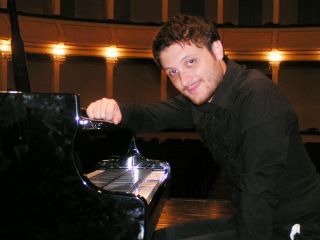 An Application of Cycles to Twelve-tone Structures An Application of Cycles to Twelve-tone Structures
Giacomo di Tollo, PhD, LISIC -- Université du Littoral Côte d'Opale, Calais France.
Abstract: The work and activity of such composers as Schoenberg and his pupils, was important to the formalization of ideas that have been proposed in other contexts by other composers as well (such as Scriabin and Bartok).
The idea of building musical architectures over twelve tones has been a key point in developing combinatorial issues which can be tackled by using new paradigms stemming from various areas of research within artificial intelligence.
In this seminar, we will analyze some of those issues by using a piece of software developed by Giacomo di Tollo. This software was inspired by the ideas behind the theory of cycles and kaleidocycles as these have been expressed by composer Luigi Verdi.
Poster for the seminar available HERE.
Audience participation via Skype is also welcome.
Please Note: Giacomo di Tollowill be giving the May 2 Lunchtime Concert at the University of Southern Denmark. Please see http://www.soundmusicresearch.org/lunchtimeconcerts.html for details as these become available.

Please see the following networks for additional information about activities within The Aesthetics of Music and Sound:

JMM: The Journal of Music and Meaning (Funded by the Danish Research Council for the Humanities.)
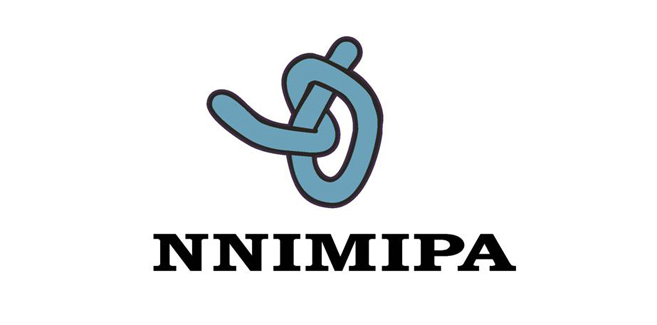
Nordic Network for the Integration of Music Informatics, Performance and Aesthetics (originally supported by NORDPLUS and subsequently by NORDFORSK)

netværk for tværvidenskabelige studier af musik og betydning/
network for cross-disciplinary studies of music and meaning

|
|
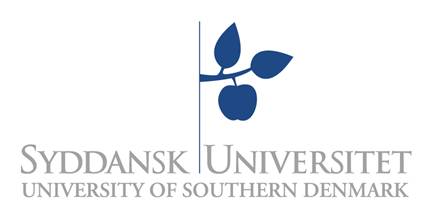

Department for the
Study of Culture
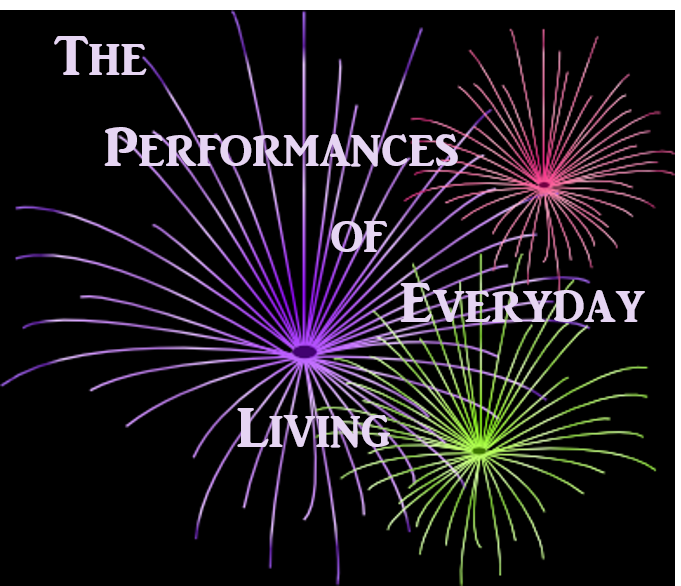
Research Director for
The Performances of
Everyday Living
Coordinator for
The Aesthetics of
Music and Sound
and
Editor and Webmaster for
www.soundmusicresearch.org:
Cynthia M. Grund
cmgrund@sdu.dk


Updates

PLEASE NOTE: During the month of March 2015 and possibly extending into April/May 2015, heavy construction will be taking place on this website behind the scenes as it "migrates" to new editing software. Please be patient with us during this period if occasionally some pages take on a strange appearance, or if updating seems to be a bit erratic. All efforts will be made to maintain the integrity of the page with the schedule for the seminar series Topics in the Aesthetics of Music and Sound: Mostly Metal here, but it will nevertheless be a good idea also to keep an eye on our Facebook group here and the regularly occurring announcements of events on it during this period. Thank you for your patience!
During March-May 2015 we will also continue to develop our new

channel, which we encourage you to visit here.
Archive
for ""Updates" and "News":
Click HERE.

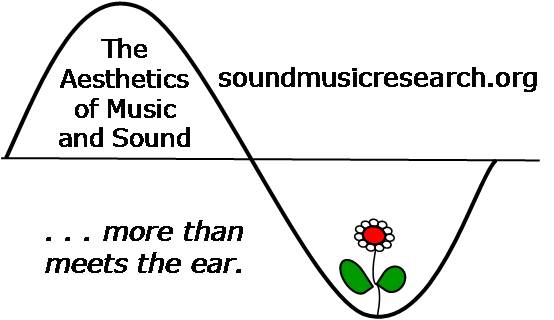
| |